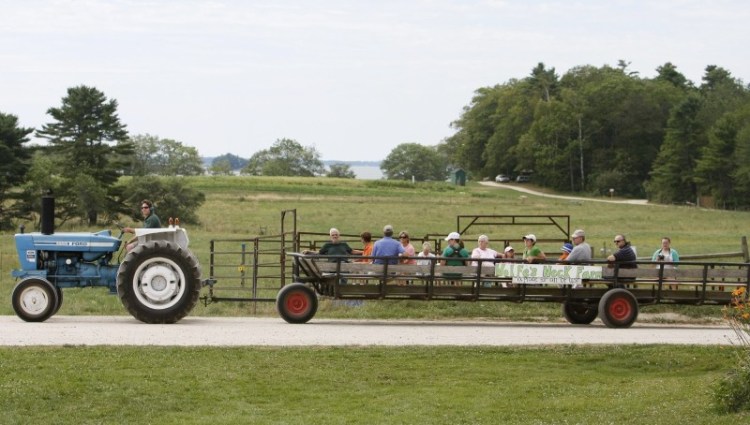Maine literary luminaries E.B. White and Robert P. Tristam Coffin lived on and wrote about them, but search for “saltwater farm” on the Internet today and most of the hits are real estate ads. Expensive real estate. (Then there’s the tony vineyard/events venue in Connecticut and the haute artisanal cafe/cooking school in Rockport.)
“It simply describes a farm which gets its feet salty wet,” said Greg Paxton, executive director of Maine Preservation, “but probably in a way that’s characteristic of our modern way of looking at land use. Put it this way – (in the past), the water wasn’t quaint, just like the wilderness wasn’t quaint. I don’t know that it was at all an advantage. With a big wave or a storm, you end up with salt on your field, not to mention your house. And it’s easier for your animals to walk in and drown or get stuck. I think from the farming standpoint, it’s either a yawn or an inconvenience.”
Aesthetically and romantically, though, it can’t be beat.
In his poem, “A Boy on a Saltwater Farm,” Coffin began, “The farm for boys to grow up on/Is one where seagulls bring the dawn.” (The poem continues in the same vein. Later on, “Lighthouses are blinking fast/To light him and the cows to bed.”)
White, too, found that such farms offered many advantages. As he wrote in the essay “Salt Water Farm” in “One Man’s Meat,” “I think it is the expansiveness of coastal farming that makes it so engrossing: the knowledge that your fence, on one side at least, shuts out no neighbor – you may climb it and keep going if you have a boat and the strength to raise a sail.”
You just have to hope that someone at home has remembered to milk the cows.
— PEGGY GRODINSKY
Send questions/comments to the editors.



Success. Please wait for the page to reload. If the page does not reload within 5 seconds, please refresh the page.
Enter your email and password to access comments.
Hi, to comment on stories you must . This profile is in addition to your subscription and website login.
Already have a commenting profile? .
Invalid username/password.
Please check your email to confirm and complete your registration.
Only subscribers are eligible to post comments. Please subscribe or login first for digital access. Here’s why.
Use the form below to reset your password. When you've submitted your account email, we will send an email with a reset code.